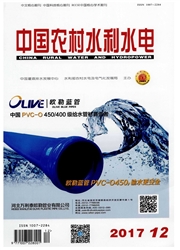

 中文摘要:
中文摘要:
政府部门作为主体去承担农村地区的水利基础设施建设和维护,是当前中国社会较为普遍的现象,这种方式不仅给地方政府带来较大的融资风险,也对地方财政造成了较重的负担,长此以往,我国很多农村地区的水利基础设施都存在着供不应求、管理效率低下、设备维护困难的情况。在农村水利基础设施建设中引入PPP模式,不仅有利于减轻地方政府所承受的财政负担、优化社会资源、提高项目建设的效率和质量,也有利于促进政府职能转变,提高执政效率。通过对当前农村地区水利基础设施现状及PPP模式的分析,从不同的维度探讨了该模式的应用及实施路径,并就推进该模式积极进入农村水利基础设施领域提出相关建议。
 英文摘要:
英文摘要:
Government departments is the main body to take water infrastructure construction and maintenance in rural areas. This way not only brings a great risk of financing to the local government, but also has a heavier burden on the local finance. In the long run, a lot of water infrastructure in rural areas in China is in short supply, low efficiency and poor equipment maintenance manage- ment. The introduction of PPP model in rural water infrastructure construction is not only conducive to mitigating and bearing the fi- nancial burden of local government, optimizing the social resources, improving the efficiency and quality of the construction of the project, but also promoting the transformation of government functions and improving power efficiency. At present, the PPP pattern of the urban infrastructure construction in our country has obtained good effects, and accumulated many successful experiences, so the pattern is introduced into the rural water infrastructure. It has important practical significance.
 同期刊论文项目
同期刊论文项目
 同项目期刊论文
同项目期刊论文
 期刊信息
期刊信息
